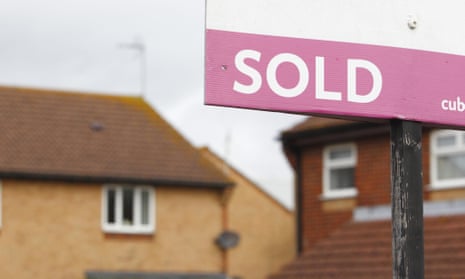Q We are buying our next family home. My husband wants it in his sole name (both on the mortgage and at the Land Registry) but this makes me feel uneasy. He says it doesn’t matter as we are married so if he dies I will get it and if we divorce I will get half.
I’m currently on maternity leave so not earning but when I was at work, I did pay towards the mortgage each month. However, I don’t earn as much as him so before I was only able to contribute a small amount towards the mortgage.
He says because I have a flat I bought with a friend some years ago making me a joint owner would create an issue with stamp duty and also I wouldn’t be able to get a mortgage so he will leave my name out on the application.
This doesn’t make me feel comfortable. Am I protected? Or – if not – how can I protect myself? My husband says that when I am able to sell my flat can I put my name on the house but won’t there be fees to pay to do that?
BY
A I have some bad news for your husband: even if you aren’t named as joint owner on the new house your flat could still have an impact on the rate of stamp duty land tax (SDLT) you are charged in England because the tax system treats a married couple or civil partnership as one unit.
The good news is that if, as I assume you are, the house you plan to buy is replacing the “main residence” you currently live in, you won’t have to pay the higher rate of SDLT despite owning two properties as a couple. The same is true under the rules in Scotland.
So being named as a joint owner doesn’t make any difference to the amount of SDLT that has to be paid in this case. But it potentially makes a big difference to what you would get in the event of your husband’s death.
If you were made joint tenants, you would automatically get the whole house on his death. If you were named as tenants in common – so you each owned a distinct share in the house – you would get to keep your share but you’d only get your husband’s share if he left it to you in his will. This would also be the case if the house was in his sole name so you are right to worry about not being protected.
What you would get on divorce depends on the financial agreement you make at that point, and you wouldn’t automatically get half.
Rather than waiting until you have sold your flat, it would be better to become a joint owner – and preferably as joint tenants – from the date of purchase. Doing this would also be cheaper than putting your name on the property at a later date, as there would be fees to pay.
As far as not being able to get a mortgage while on maternity leave goes, your husband is talking twaddle. According to Pete Mugleston, a mortgage adviser at onlinemortgageadvisor.co.uk, while “maternity leave may be a time of financial uncertainty, despite what you might have heard to the contrary, it is possible to get a mortgage while you are on it”. However rather than approaching mainstream mortgage lenders directly, it would be easier to find an amenable lender with the help of an independent mortgage adviser.
